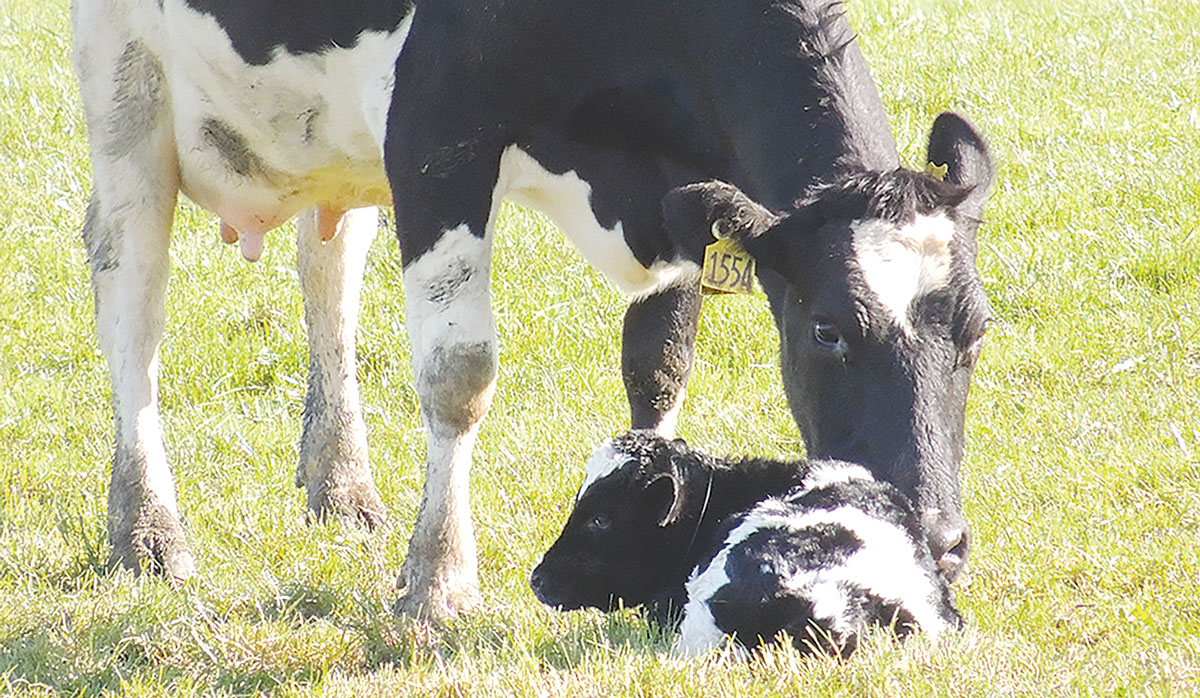DairyNZ Calls for Changes to Government’s Proposed Resource Management Act Reform
DairyNZ says the Government’s proposed Resource Management Act reform needs further work to ensure it delivers on its intent.
As calving approaches, farmers need to get their teams ready for what lies ahead in the coming months.
That's the advice from Tony Finch, DairyNZ's national engagement lead, who says calving is just starting in the north of the country and will work its way south over the coming months.
He says a key thing for farmers at this time of the year is to manage and preserve feed as best they can, manage animal health and keep up the condition score of animals prior to calving.
Finch says by and large the season has been better than some had anticipated, but he says farmers in some regions are still managing the hangover from dry autumn weather.
"This is the sting in the tail from El Nino and we still have some regions that went in with low covers and finished milking with low covers and their winter crop yields were well back. They've been having to manage body condition score, and it's challenging and it comes at a cost, because of the extra feed they have had to provide," he says.
On the upside, Finch says the frosts that would normally stunt pasture growth have in this case been a help. He says feed utilisation on the harder ground has been good. He says also the winter so far has been a bit warmer than expected, allowing what he calls "compensatory growth" or late grass growth, which has helped some farmers.
"Some regions like the West Coast had a brilliant season and some farmers are growing up to 30kgDM/day which is amazing for this time of the year.
"So overall, some winter crop yields are down in yields, but the compensatory growth and greater utilisation means that by and large the country is coping pretty well. It would seem that teams are well prepared and ready for calving and looking forward to what's in front of them - 'the havoc season' aka calving," he says.
 |
|---|
|
Calving has started north of the country and will work its way south over the coming months. |
Tough Times
Tony Finch says while things are better than some had predicted, dairy farmers are still apprehensive about the future - particularly about what the farmgate milk price might end up being.
He says while on-farm inflation has come down, it's still high, as are interest rates. He reiterates that many farmers will come into winter feeling the cost of feeding out in the dry autumn. He says while the weather has been kind so far, winter is far from over and farmers need to plan for the unexpected.
"Southland is a classic case. They had a really wet May and June and it got pretty hard down there. But it's since settled down and they've had some nice weather, but all it takes is another front and things can revert to where they were," he says.
Budou are being picked now in Bridge Pā, the most intense and exciting time of the year for the Greencollar team – and the harvest of the finest eating grapes is weeks earlier than expected.
The Real Estate Institute of New Zealand (REINZ) has released its latest rural property report, providing a detailed view of New Zealand’s rural real estate market for the 12 months ending December 2025.
Rural retailer Farmlands has released it's latest round of half-year results, labeling it as evidence that its five-year strategy is delivering on financial performance and better value for members.
OPINION: "We are back to where we were a year ago," according to a leading banking analyst in the UK, referring to US president Donald Trump's latest imposition of a global 10% tariff on all exports into the US.
DairyNZ says the Government’s proposed Resource Management Act reform needs further work to ensure it delivers on its intent.
Overseas Trade Minister Todd McClay says he's working constructively with the Labour Party in the hope they will endorse the free trade agreement (FTA) with India when the agreement comes before Parliament for ratification.
OPINION: Expect the Indian free trade deal to feature strongly in the election campaign.
OPINION: One of the world's largest ice cream makers, Nestlé, is going cold on the viability of making the dessert.